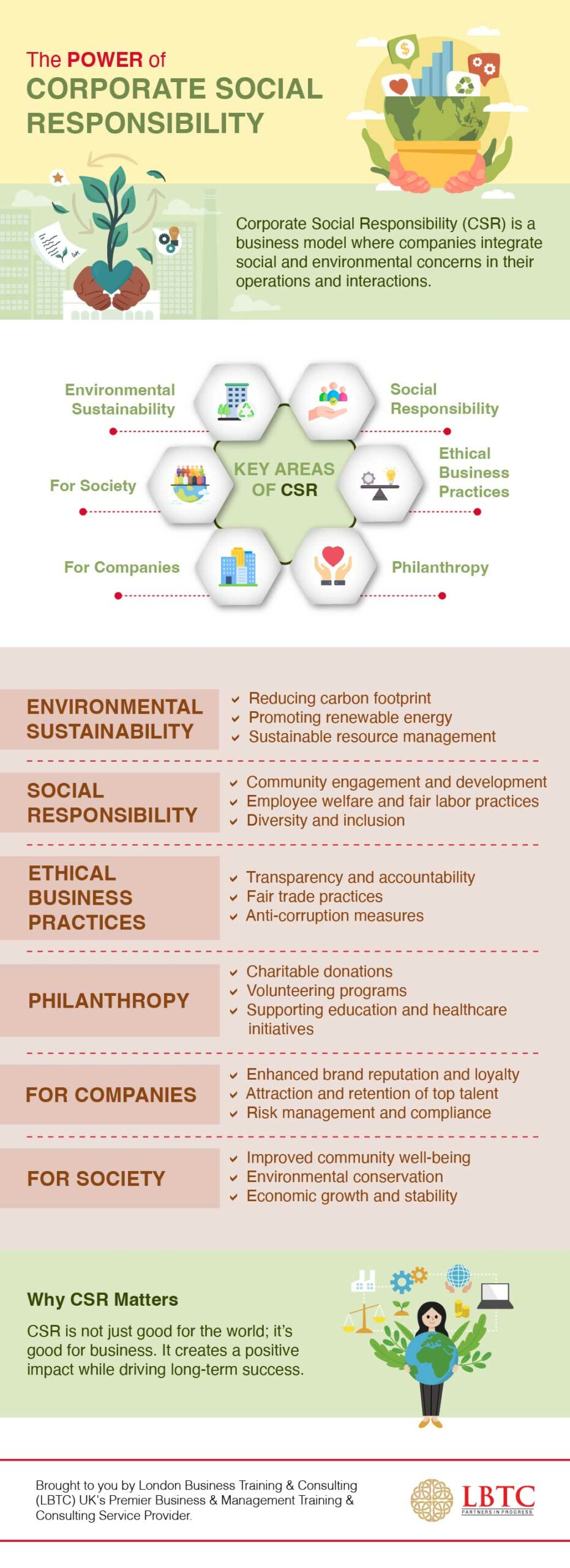
Corporate Social Responsibility (CSR) has developed from a voluntary corporate initiative to a crucial element of contemporary business strategy in today’s more linked world. Businesses are being assessed for their contributions to the environment and society in addition to their financial performance. CSR is the term used to describe an organization’s attempts to conduct business ethically while considering the effects on the environment, society, and economy. The significance of corporate social responsibility (CSR) in fostering a favourable brand image and guaranteeing sustained success has never been greater, given the growing social consciousness of stakeholders and customers.
Why CSR Matters
Corporate Social Responsibility (CSR) is the process of incorporating social and environmental concerns into corporate operations rather than just being philanthropic or following the law. Businesses that participate in CSR programs show their dedication to moral behaviour, which benefits their ability to gain the respect and confidence of investors, staff, and consumers. Being able to trust a brand can be advantageous since people are more willing to support brands that share their beliefs.
Additionally, CSR is essential to risk management. Companies can reduce their exposure to risks such as supply chain disruptions, reputational harm, and legislative changes by taking proactive measures to address social and environmental challenges. In a time when information spreads quickly and business errors can become viral, a company’s reputation can be protected with a strong CSR plan.
The Impact of CSR on Brand Image
Positive effects on brand image are among CSR’s most important benefits. Businesses that are seen as socially conscious typically have happier employees and more devoted customers. Consumers of today are pickier and better educated about the businesses they support. Even if it means spending more for goods and services, they support businesses that improve the environment and society. CSR is now a crucial differentiator in industries with intense competition due to this shift in customer behaviour.
For example, the public tends to be more supportive of businesses that reduce their carbon footprint, promote fair trade, or work on community development initiatives. Customers are drawn to and helped retain by this good view since they are more inclined to stick with a company that aligns with their beliefs. Furthermore, since more and more workers want to work for companies that are making a positive impact on the world, a solid reputation for corporate social responsibility helps draw in top talent.
How Companies Can Implement Effective CSR Strategies
To fully realize the benefits of CSR, companies need to implement well-thought-out strategies that align with their core values and business objectives. This begins with understanding the specific social and environmental issues that are most relevant to the company’s industry and stakeholders. Once these areas are identified, companies can develop targeted initiatives that address these challenges while also contributing to business growth.
Education and training are crucial components of an effective CSR strategy. Companies should invest in CSR courses that help their leaders and employees understand the principles of corporate responsibility and how to integrate them into everyday business practices. These courses can cover topics such as sustainable development, ethical sourcing, community engagement, and environmental stewardship. By equipping employees with the knowledge and skills to implement CSR initiatives, companies can ensure that their efforts are not only impactful but also sustainable in the long term.
Conclusion
Corporate Social Responsibility is more than just a buzzword; it is a vital component of modern business strategy. Companies that embrace CSR can build stronger relationships with their stakeholders, enhance their brand image, and secure a competitive advantage in the marketplace. By investing in CSR courses and developing comprehensive strategies, businesses can not only meet the growing demands of socially conscious consumers but also contribute to a better, more sustainable future.


Leave a Reply